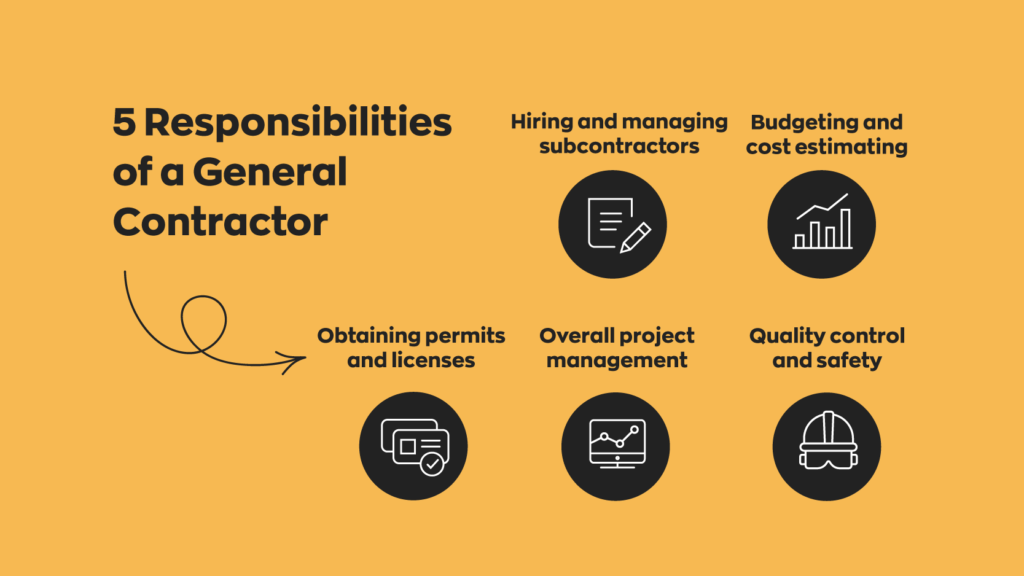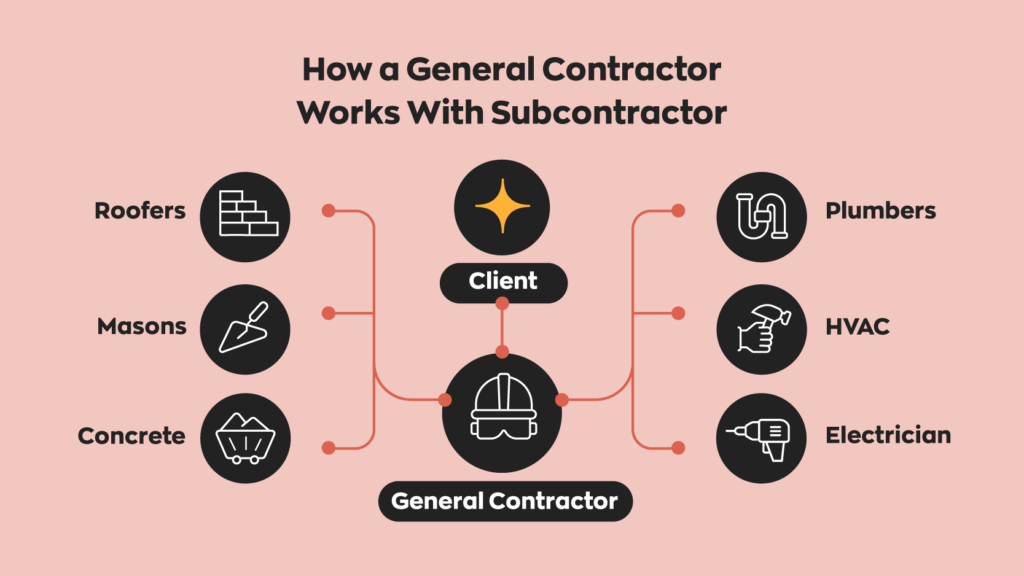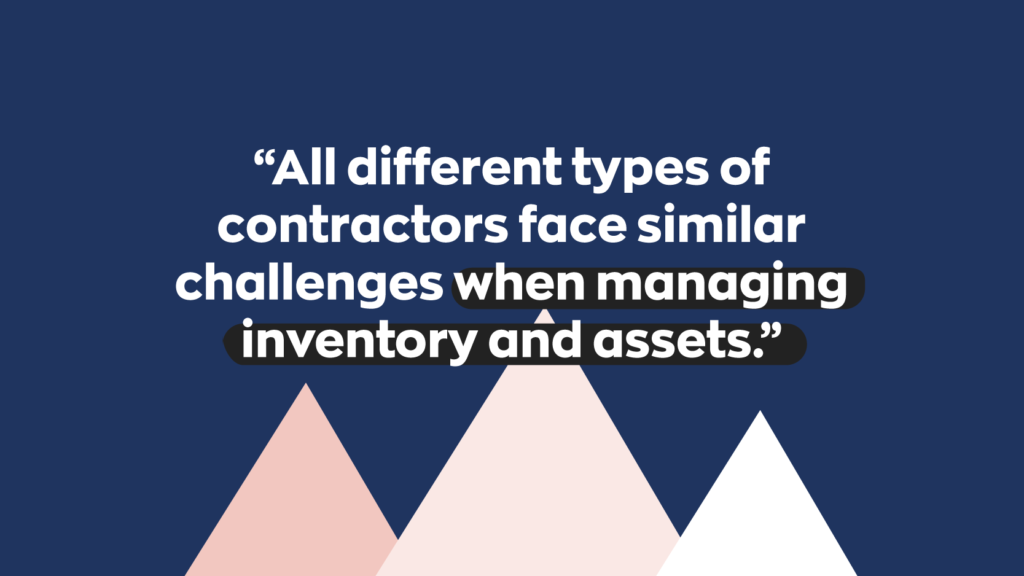Key takeaways
- There are 7 types of contractors: concrete, mason, roofer, electrician, plumber, HVAC and general contractor. Each plays a unique role in construction and field service projects.
- General contractors oversee entire projects, which include managing timelines, budgets, and subcontractors. They deal directly with the client and act as the liaison, ensuring all the client’s needs are met.
- Subcontractors are hired by general contractors to complete specific tasks such as plumbing, electrical work, or painting.
- Specialty contractors focus on one trade or service and either work directly with clients or as subcontractors on larger projects. Examples of specialty contractors include HVAC technicians, plumbers, and electricians.
- Choosing the right type of contractor depends on the project’s size, complexity, and the skills required.
- Proper contractor classification helps reduce risks and ensures compliance with local building codes and labor laws.
There are many different types of contractors in the field service industry. It makes sense when you think about it, considering that much of the industry involves construction. No matter the building, there’s a few things that they all need: a foundation, electricity, plumbing, HVAC systems, etc. Properly building and installing these things require very different skill sets, which is why there are so many different contractor types.
So: what types of contractors are out there? What is each of them responsible for? And what sort of unique challenges do each of them face?
What are the different types of contractors?
Depending on your specialization, you’ll generally fall into one of these six categories of contractor types; concrete, mason, roofer, electrician, plumber, and HVAC. The seventh type of contractor is a bit different than the others because rather than focusing on a single niche area of expertise, they bridge the gap between all the other contractors to ensure they’re working in conjunction with one another.

We’ll go into more detail on what a general contractor does later. For now, let’s talk about the other six types of contractors.
Exterior contractors – concrete workers, masons, and roofers
Concrete workers build structures from concrete. They’re in charge of mixing the concrete, creating the retaining structure, and ensuring it settles correctly. It seems simple on a surface level, but they also handle a lot of peripheral activities. Considering how much concrete we use regularly, the demand for concrete contractors is always high.
Mason contractors specialize in building structures out of bricks, blocks, or stone, typically bound together with mortar. They’re typically in charge of constructing and repairing walls, foundations, chimneys, and other structures made out of masonry materials.
Roofers specialize in the construction, maintenance, and repair of roofs. They’re responsible for ensuring that roofs are not only safe but able to withstand the elements. They work with a wide variety of materials: one customer may want an asphalt roof, and another may want a metal roof.
Interior contractors – electricians, plumbers, and HVAC technicians
Electricians install, maintain, and repair electrical systems of all sorts. They’re also in charge of making sure that systems are up-to-date and in compliance with regulations. It’s worth noting that the electrical field may be the most diverse, with many different specializations. One electrician may specialize in working on marine equipment, while another may specialize in home repairs.
Plumbers, generally speaking, are in charge of installing, maintaining, and repairing a building’s pipework. This isn’t limited to water or sewage pipes; certified plumbers typically also install and maintain gas lines. Plumbers are also responsible for ensuring that buildings are up-to-date and compliant with regulations.
HVAC stands for heating, ventilation, and air conditioning. This encompasses every system that moves air throughout a building, ranging from vents and ductwork to modern air-conditioning units. Many HVAC companies also offer energy audits, which can help increase the efficiency of their systems. This increase in efficiency can save a lot of money in the long run.
What is a general contractor?
We’ve saved “general contractor” for last because it’s slightly different from the others. General contractors play a different role in the field service industry than other types of contractors. Instead of doing the labor themselves, general contractors are in charge of overseeing a project. This includes things like hiring workers, purchasing materials and equipment, and coordinating with other types of contractors.

While a general contractor may not be as hands-on as the other types of contractors, they still play an important part in projects. Serving as the lead cuts down on time spent communicating between different teams, and they’re typically well-versed in many different fields. Understanding the work of many different types of contractors is essential to forming a coherent workflow.
Their knowledge ensures that the project proceeds as planned and helps minimize any inherent risks.
What problems do all types of contractors face?
Different types of contractors typically offer different skill sets but tend to face similar issues, mostly logistics-related. Because different contractors work in various fields, they tend to work with a wide range of materials and equipment.
This all adds a lot of variables to the mix. For example, consider electricians and plumbers. Both are highly specialized in their own right but are completely different types of contractors. An essential part of an electrician’s toolkit is a non-contact voltage reader, which a plumber would have no use for. And that’s just for two types of contractors; the more there are, the more variables to consider.
Unfortunately, specialized equipment like this tends to be expensive, meaning that most projects will only have the bare minimum. It’s a necessary cost-saving measure but one that can prove costly. If someone loses track of the equipment, it effectively puts a stop to any current and future work.
Acquiring and keeping track of materials can prove similarly challenging. Most materials are sourced from many different locations. For example, China remains the largest concrete producer, while North America is the lead producer of lumber.
Even if you purchase these materials simultaneously, there’s a good chance they’ll arrive at different times. And while each contractor plays a vital role in any project, there is also a certain order to things. You can’t have an electrician hook the building up if there’s no walls to run wiring through.

And once the materials arrive, if counts or material tracking are done incorrectly, further issues can arise. It’s not uncommon for all types of contractors to work on multiple different job sites at once, making it easy for things to slip between the cracks.
What’s the solution?
It’s not uncommon for contractors to run out of materials because of poor inventory management. Something that, as we’ve already established, can lead to issues across multiple teams. If not kept in check, a single issue can cascade into many problems, jeopardizing the project as a whole.
Field management software is a great way to keep these issues in check. While field service projects still face many logistics issues, modern solutions can make things easier for all types of contractors.
On top of perpetual inventory control, inFlow’s field management software works seamlessly with barcodes and easily tracks materials cost. You can even use inFlow to track your assets so you can keep tabs on your most valuable specialized tools.






Looking for work where there’s hurricane damage
Hey Tommy,
I would reach out to local businesses in areas that have experienced significant damage due to recent hurricanes. I’m sure many of them are experiencing an influx in jobs.
Cheers,
Jared
Great post on the different types of contractors in the field service industry! It’s interesting to see how specialized each contractor is in their respective fields. I particularly appreciate the section on general contractors, as they play a crucial role in overseeing projects and ensuring smooth communication between all the different contractors. As someone in the automation industry, I believe that effective collaboration and coordination are essential to avoid delays and confusion. Looking forward to more insightful posts like this
Hey Devanshu,
Thank you so much for the kind words! I’m glad you found the post insightful. We’re always releasing more content you might find useful, so please consider subscribing to our newsletter at the bottom of this page to stay up to date.
Cheers,
Jared